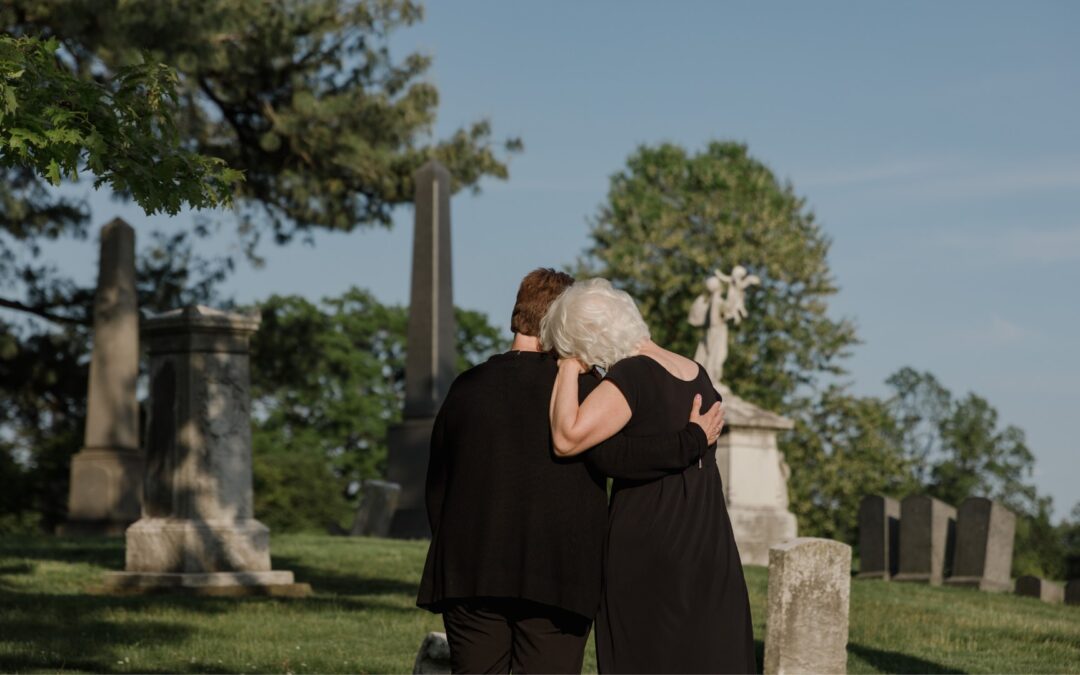Grief is a nuanced and deeply personal experience, and it can bring on a whirlwind of emotions at different times. Within the sorrow and pain, one emotion that often comes up is anger. You might be wondering, “Is it okay to be this angry after someone dies?” The short answer is yes. Anger is a natural part of the grieving process, and it’s helpful to accept it as a valid response to losing someone. At Simi Psychological Group, we support individuals and families through every stage of grief, offering compassionate family grief counseling Simi Valley to help you navigate these difficult emotions.
Understanding Grief and its Stages
We often hear about the 5 stages of grief:

Denial
This is a defense mechanism to cushion the immediate shock. During this time, we might struggle to accept the reality of losing someone we love, feeling numb or detached from reality. For many people, the denial stage serves as a temporary escape.
Bargaining
This involves dwelling on what could have been done differently. We may think in “if only” or “what if” scenarios, to try to make sense of the loss.
Depression
Characterized by deep sadness and withdrawal from life, it’s the stage where we are confronted with the reality of the loss and the emotional pain it is causing.
Acceptance
This is the stage where we acknowledge the loss and find ways to move forward. It doesn’t mean we’re “healed” from the pain of losing someone, but rather that we learn to live with it.
Anger
We might direct this feeling towards ourselves, others, or even the person who passed away. Questions like “Why did this happen?” or “Why did they leave?” may often come up.
If any of these stages of grief sound familiar, feel free to read more about Pain in Grieving: Our Guide to Help You Understand Better.
The Complex Journey of Grief
What we don’t always hear is that these stages aren’t linear. They don’t follow a specific order, and they can hit you much later than you expect. You might find yourself moving back and forth between stages or experiencing them all at once. This unpredictability is part of what makes grief so difficult.
“Remember to have grace with yourself during your grieving journey. There is no “easy” or “right” way to grieve.” – Dr. Donna Novak
Anger, in particular, can be a powerful and confusing emotion during this time. It probably feels inappropriate and you may start feeling guilty for being angry, but it’s important to remember that it’s a natural reaction to the pain and loss you’re experiencing. Grief counseling can provide a safe space to explore these feelings and understand their role in your healing process.
Why Anger is a Normal Response to Losing Someone

Anger is a common and natural part of the grieving process. It can stem from feelings of helplessness, abandonment, or untreated trauma. We might feel angry at ourselves, others, or even the person who has died. This anger can manifest in various ways, including irritability, frustration, and resentment.
Won’t Allowing Myself to Be Angry Make Me Angrier?
A common concern is that acknowledging our anger will intensify the emotion and only make matters worse. In reality, suppressing your anger can lead to greater emotional distress and prolonged grief. Allowing yourself to feel and express anger can help you process it better, preventing it from festering and causing more harm in the long run.
Understanding Anger as a Secondary Emotion
We often hear that anger is a secondary emotion, meaning it typically comes up in response to primary emotions like fear, sadness, or hurt. When we lose someone, these primary emotions can be overwhelming and difficult to face directly. Anger can serve as a protective mechanism, masking the more vulnerable feelings underneath that we may not be ready to confront.
For example, you might feel intense sadness or fear about the future without your loved one. Expressing these feelings might make you feel exposed or weak. Anger, on the other hand, feels more powerful and gives you a sense of control. Knowing this can help you understand that beneath your anger, there may be deeper, primary emotions that need to be addressed.
Different Ways Anger Shows Up
Anger can show up as outbursts, withdrawal, or even physical symptoms. Recognizing these signs can help us understand and address our anger more effectively. Here are some ways anger might manifest during the grieving process:
Self-blame
Anger can be directed inward, manifesting as guilt or self-criticism for things you did or didn’t do. You may find it more difficult to challenge negative thoughts.
Irritability
Small things that normally don’t bother you may suddenly trigger an unusual response.
Resentment
You might feel resentful towards others who aren’t experiencing the same loss or who seem to be moving on with their lives faster than you are.
Physical Symptoms
Anger can also have physical manifestations, such as increased heart rate, muscle tension, fatigue, or headaches.
By observing these patterns, you can learn how to control your anger and delve into the primary emotions that lead to it.
Immediate Ways to Cope with Anger
Coping with anger during grief can be challenging, to say the least. While common recommendations like journaling, self-care, and exercise can be helpful, sometimes you need more immediate strategies to guide you through intense emotions. Here are a few key approaches to help manage anger during this time:
Seek Professional Support
Family grief counseling in Simi Valley offers a safe space to explore your emotions with the help of a trained therapist. Grief counseling provides you with tools to manage anger, address underlying emotions, and navigate your grief journey. Professional support can be transformational in helping you understand the roots of your anger and develop healthy coping mechanisms.
Surround Yourself with Supportive People

Connecting with family, friends, or support groups can provide immense relief during times of grief. Sharing your feelings with people who understand and support you can alleviate feelings of isolation and frustration. Supportive relationships offer an environment to express your anger and other emotions without judgment.
Educate Yourself on Your Grieving Process
There are many different ways to support yourself during the grieving process. Reading books on grief and anger or seeking out educational resources can help you understand the complexities of your emotions. Learning about the grieving process can make you feel less alone and more empowered to cope with your feelings.
“Knowledge can provide a sense of control and clarity, helping you navigate your grief with greater awareness.”
You Have Support in Simi Valley
Remember, it’s okay to feel angry after someone dies. Allow yourself to experience and express this emotion as part of your healing journey. At Simi Psychological Group, we are here to support you through every step of your grief process.
Contact us today at (805) 842-1994 to schedule a consultation or learn more about our family grief counseling services and other therapy services in Simi Valley. Together, we can help you find a path to healing and peace.

Dr. Novak is the group practice owner and licensed psychologist at Simi Psychological Group a therapy practice in Simi Valley, California. Simi Psychological Group offers a variety of services including trauma therapy, couples therapy, anxiety therapy, teen therapy, and more. Simi Psychological Group emphasizes the importance of creating real change by making sure to get to the root of your struggles.




